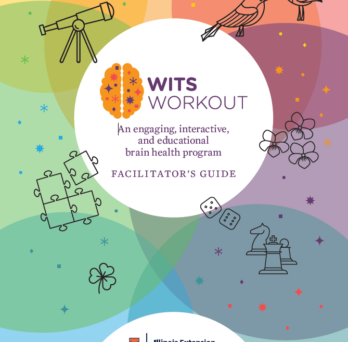Center for Dissemination and Implementation Science
Founded in 2017, the Center for Dissemination and Implementation Science (CDIS), housed in the Department of Medicine at the University of Illinois Chicago, contributes high-impact, cross-disciplinary scientific knowledge to advance health research and improve health outcomes within the field of dissemination and implementation science. Our work informs theory, intervention development and testing, and the implementation and sustainment of evidence-based programs in real-world settings in the US and globally. With an emphasis on health disparities and health equity, CDIS scholars are engaged in research on the determinants (e.g., facilitators, barriers, etc.), strategies, and constraints of implementation, new and innovative research methods, solutions to implementation challenges, and health and implementation outcomes of diverse public health programs.
CDIS scholars draw on theories and principles from diverse fields (e.g., behavioral and social sciences, public health, medicine, economics, public policy, etc.) and recognize key components of translational research. The primary focus areas of the Center include, but are not limited to, community empowerment, mental health, adolescent sexual and reproductive health, HIV/AIDS, substance use, aging, homelessness, intimate partner violence, and urban and global health.
Within the developing field of implementation science, CDIS provides an intellectual and collaborative space for scholars to grow and learn from each other and share resources, creating an environment for more impactful and sustainable implementation science research, practice, and education.
Mission, Vision and Values Heading link
The Center for Dissemination and Implementation Science is committed to the advancement of implementation science research, practice, and education, in partnership with communities, to reduce health disparities. We are striving to build a healthier and more equitable world through implementation science.
Our Mission
To advance implementation science research, practice, and education, in partnership with communities, to reduce health disparities.
Our Vision
Building a healthier and more equitable world through implementation science.
Community Partnership
Community partnership is central to everything we do. To us, community partnership means engaging with community members from start to finish. The process begins with collaboratively determining a community’s self-identified needs. It continues with participatory processes that treat academics and community partners as equals in research and implementation. It highlights community partners’ roles as experts in the issues they are facing. And it ends with the creation of shared networks of committed relationships characterized by sustainable mutual benefit and reciprocity.
Diversity, Equity, and Inclusion
We take an expansive view of diversity, equity, and inclusion (DE&I), both in the interventions we implement and within our organization. To us, DE&I means centering the experiences of people who have historically been marginalized, especially on the basis of race, ethnicity, class, gender, sexual orientation, age, language, and/or ability. We strive to develop interventions in partnership with marginalized communities to directly address structural determinants of health, confront social inequities, and work for social justice. We recognize that the achievement of a diverse, equitable, and inclusive workforce within our Center requires the involvement of marginalized community members in leadership and decision-making processes.
Scientific Advancement
We strive to produce rigorous scientific evidence that meaningfully and sustainably impacts health outcomes. We set high standards for ourselves in the research we conduct and maintain these standards through the development of research and administrative infrastructure and the codification of successful protocols and procedures. The Center infrastructure enables us to apply cutting-edge research methods to test innovative solutions to pressing public health problems. It also creates ample space for professional development, producing the next generation of implementation scientists.
Multidisciplinary Collaboration
We highly value multidisciplinary collaboration. To us, a multidisciplinary approach entails drawing from a wide range of fields, from psychology to sociology to public health and medicine. We use and appreciate the power of quantitative, qualitative, and mixed methods, and intentionally apply each of these. We treat each other and our collaborators—across departments and schools, at all career levels—with high levels of collegiality, professionalism, and respect. We emphasize practices that facilitate team cohesion, making our Center a place where faculty and staff can thrive.
Latest News and Events Heading link
Connect With Us Heading link
-
Works in Progress
Monthly meetings on the first Monday at 12:00PM via zoom.
-
Consulting Services
As needed upon request.
-
Sign up for CDIS Updates


